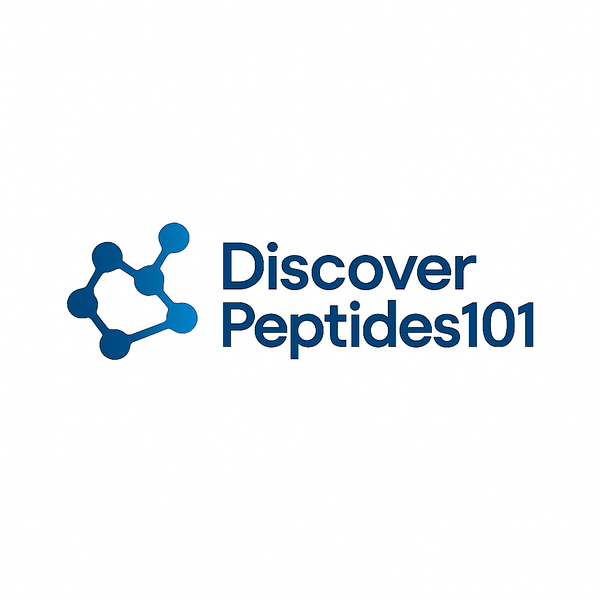🧬 Are Peptides Safe? Learn the Truth About Peptide Use, Risks & Science
🛡️ Are Peptides Safe?
Understanding the Benefits, Risks & How to Use Them Responsibly
Updated June 2025 • By DiscoverPeptides101.com
🧬 Why Peptide Safety Matters More Than Ever
Peptides are quickly becoming a mainstay in modern wellness, with applications in fat loss, cellular health, muscle recovery, and skin regeneration. But as the popularity of peptides grows, so do the questions:
- Are peptides safe to use daily?
- Are all peptides the same?
- What should you look out for before choosing a peptide protocol?
Let’s explore what the science really says—so you can make informed, confident decisions.
⚠️ The Risks: What Can Make Peptides Unsafe?
While peptides can offer powerful benefits, safety depends entirely on how they are made, delivered, and used. Here are the key concerns:
❌ 1. Unregulated Products
Many peptides sold online are labeled as “research-only” chemicals, meaning they are not approved for human use and may lack proper safety protocols. These products may be:
- Contaminated or impure
- Labeled inaccurately
- Sold without dosage guidance or usage instructions
❌ 2. Hormonal Disruption
Certain peptides mimic hormones like growth hormone, insulin, or IGF-1. When misused or overused, these can disrupt your natural endocrine rhythm, causing:
- Bloating or fatigue
- Hormonal crashes or mood swings
- Potential risk for insulin resistance or metabolic imbalance
❌ 3. Injection-Related Complications
Many peptides require daily subcutaneous or intramuscular injections, which can introduce:
- Infection risk
- Improper dosing or injection technique
- Scarring or irritation at the injection site
However, you have oral peptide therapy choices that are safe and effective.
❌ 4. Lack of Long-Term Research
While many peptides show promising short-term effects, several are still in early-phase clinical study, meaning:
- Long-term safety data in humans may be limited
- There’s variability in how individuals respond
- Optimal dosing protocols are not yet standardized
✅ What Makes Peptides Safer?
Peptides can be used safely when they are:
- Synthetic and bioidentical
- Formulated with precision
- Free from hormonal interference
- Backed by peer-reviewed research
Here are the hallmarks of a responsible, science-based peptide formulation:
🔬 1. Bioidentical & Synthetic Peptides
Modern peptides are often lab-synthesized to be bioidentical—meaning their structure is identical to peptides naturally found in the human body. This ensures:
- Greater biocompatibility
- Lower risk of immune reactions
- Consistent purity and dosage
- Suitable for vegan or non-animal-derived protocols
💊 2. Non-Injection Delivery Options
Advancements in peptide delivery have made it possible to use oral capsules, troches, or sublingual formats—offering:
- Convenient daily use
- Elimination of injection-related risks
- No need for prescriptions or clinical oversight in many cases
📚 3. Science-Backed Mechanisms of Action
Some of the most studied peptides work by targeting natural cellular functions, such as:
🔥 Fat oxidation and metabolic activation
💪 Preservation of lean muscle mass
⚡ NAD⁺ production for mitochondrial energy
🛡️ Anti-inflammatory pathways and immune modulation
These mechanisms suggest that when used properly, peptides can support long-term wellness without overstimulating or disrupting critical systems.
🎯 Who Should Be Cautious?
While many peptides are safe, individuals who are:
- Taking prescription medications
- Managing hormonal disorders
- Pregnant or nursing
- Undergoing hormone replacement therapy (HRT)
...should consult a qualified healthcare provider before starting any peptide protocol.
🧠 Final Takeaway: Are Peptides Safe?
Yes—when they are clean, bioidentical, and used responsibly.
The real risk lies in unregulated, mislabeled, or hormone-disrupting peptides, especially when used without guidance.
At DiscoverPeptides101.com, we believe in evidence-based education. Whether you're interested in metabolic peptides like SLU-PP-332, NAD⁺ boosters like 5-Amino-1MQ, or recovery peptides like BPC-157 and GHK-Cu, understanding safety is step one.
Discover Products Featuring This Peptide
These statements have not been evaluated by the FDA. This site is for educational purposes only and does not treat, diagnose or cure any condition. Always consult with your doctor before starting any type of supplement regiment.
